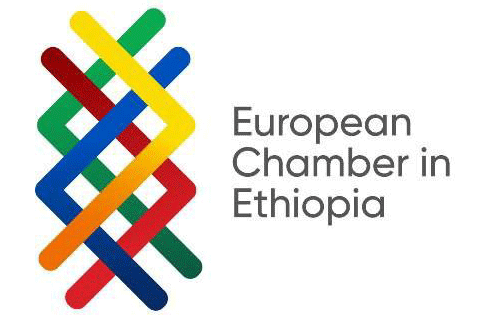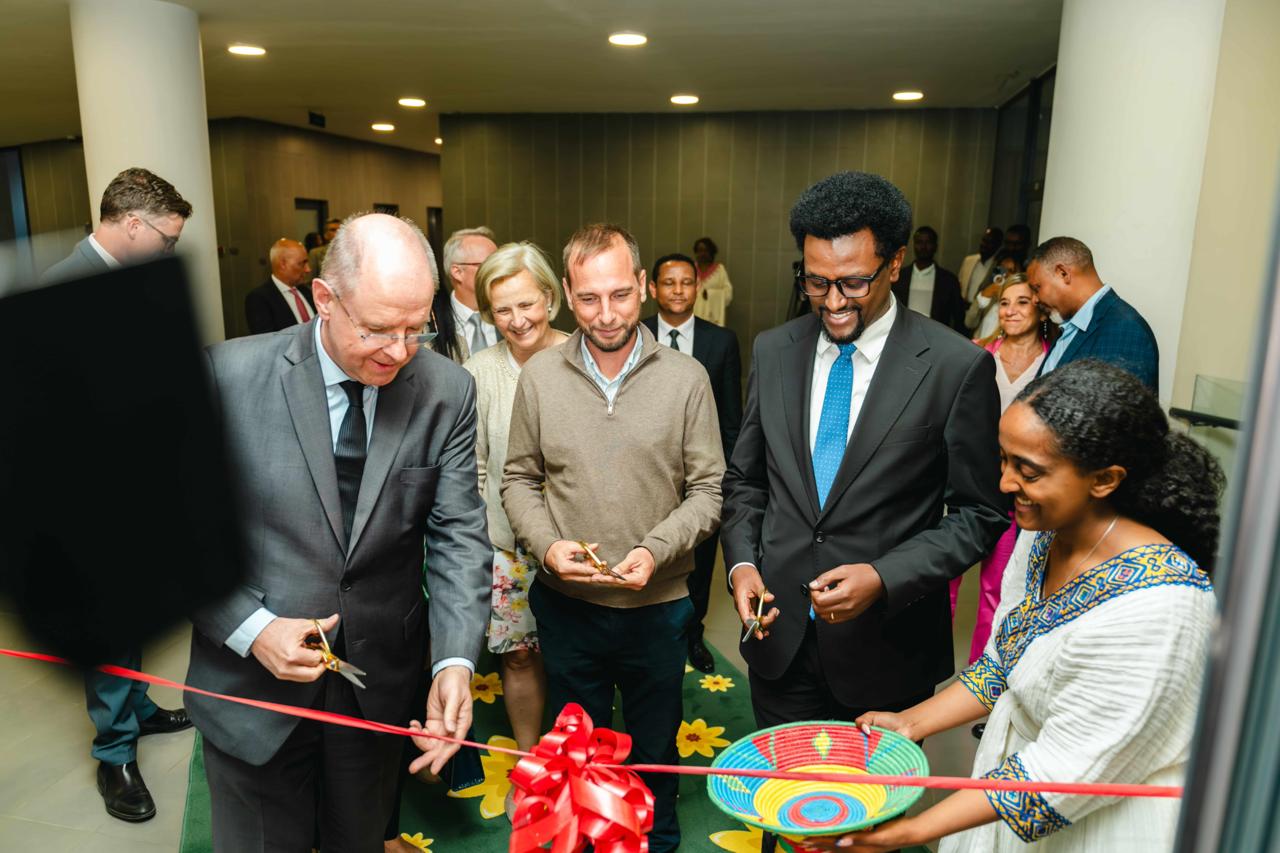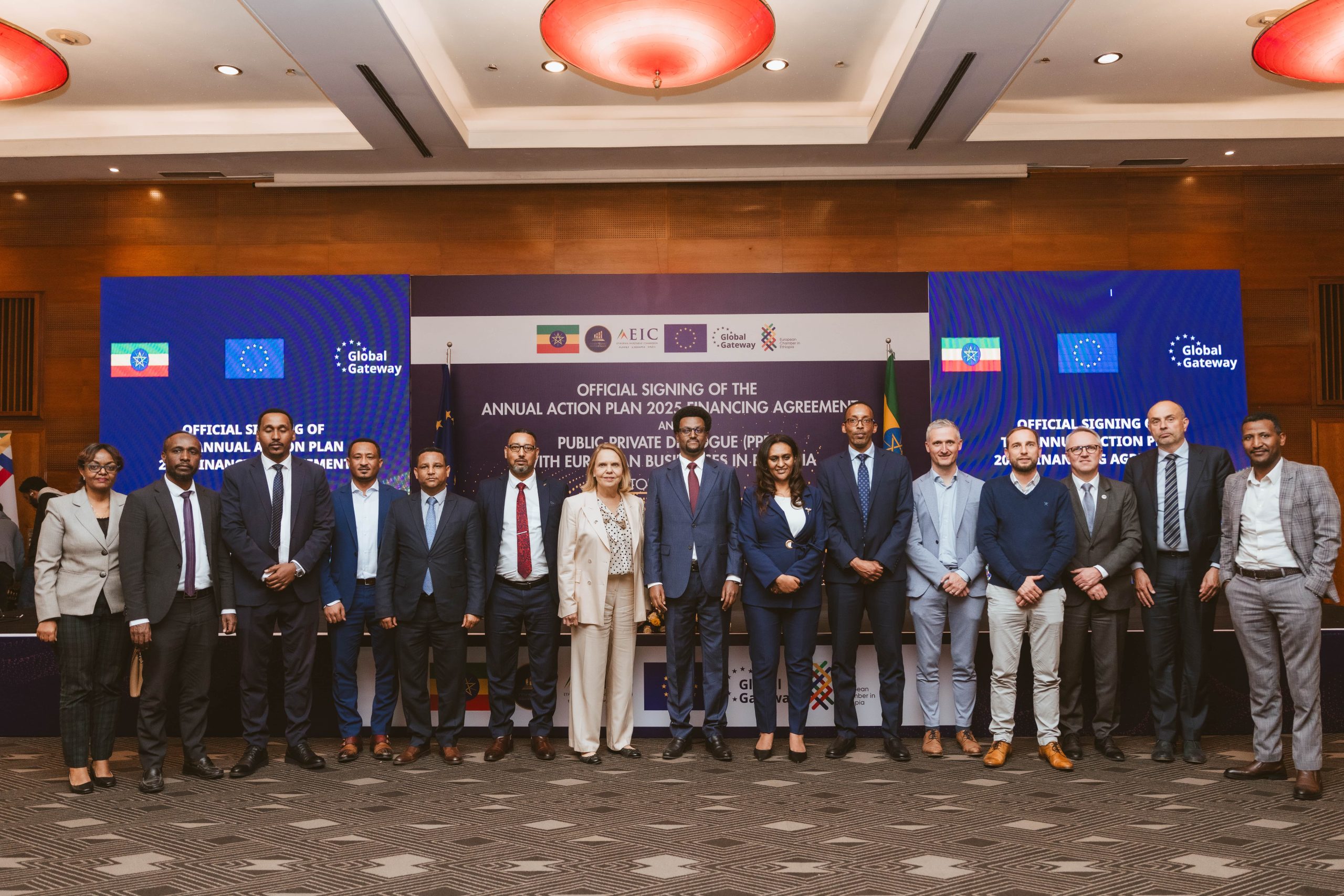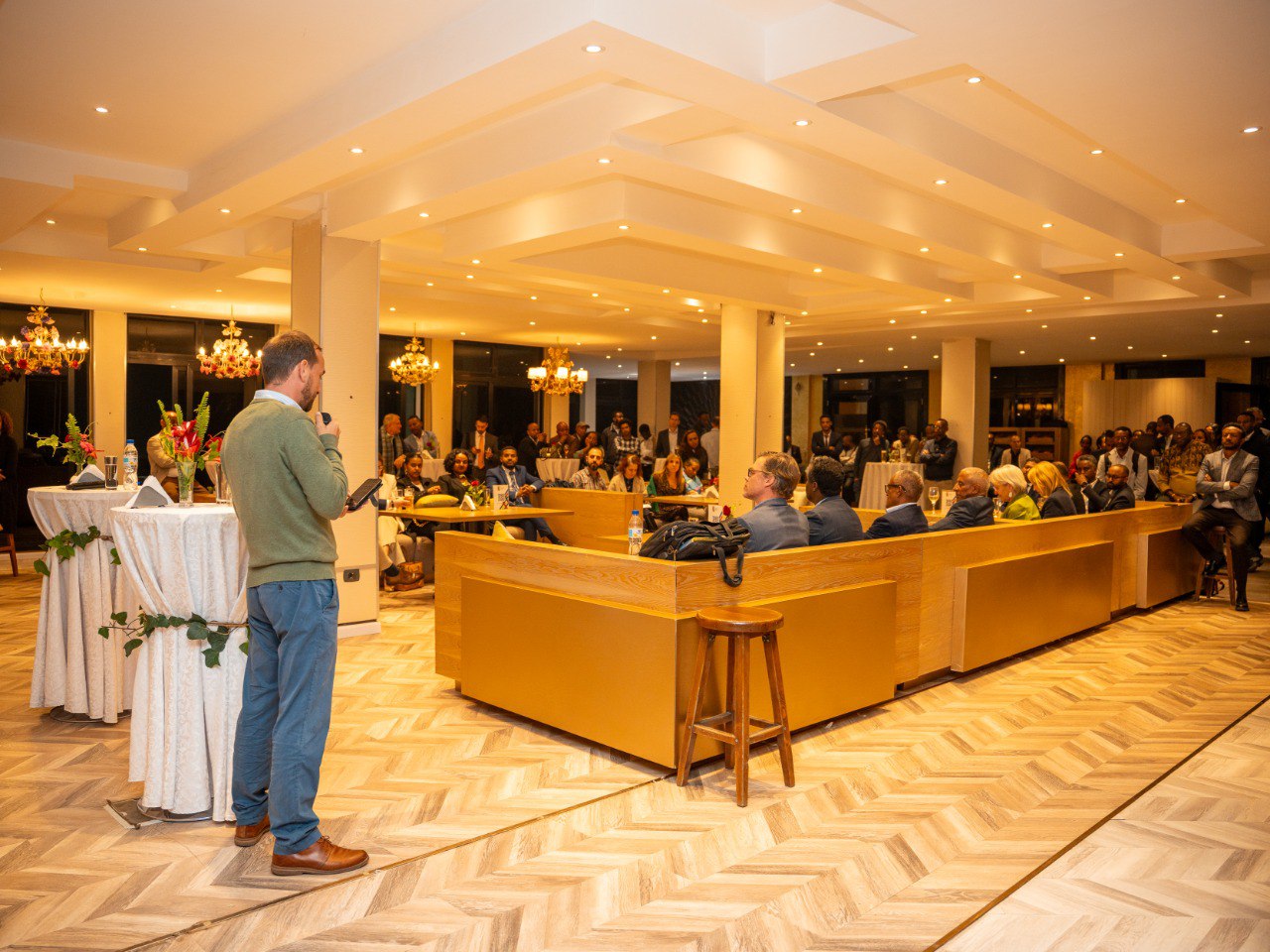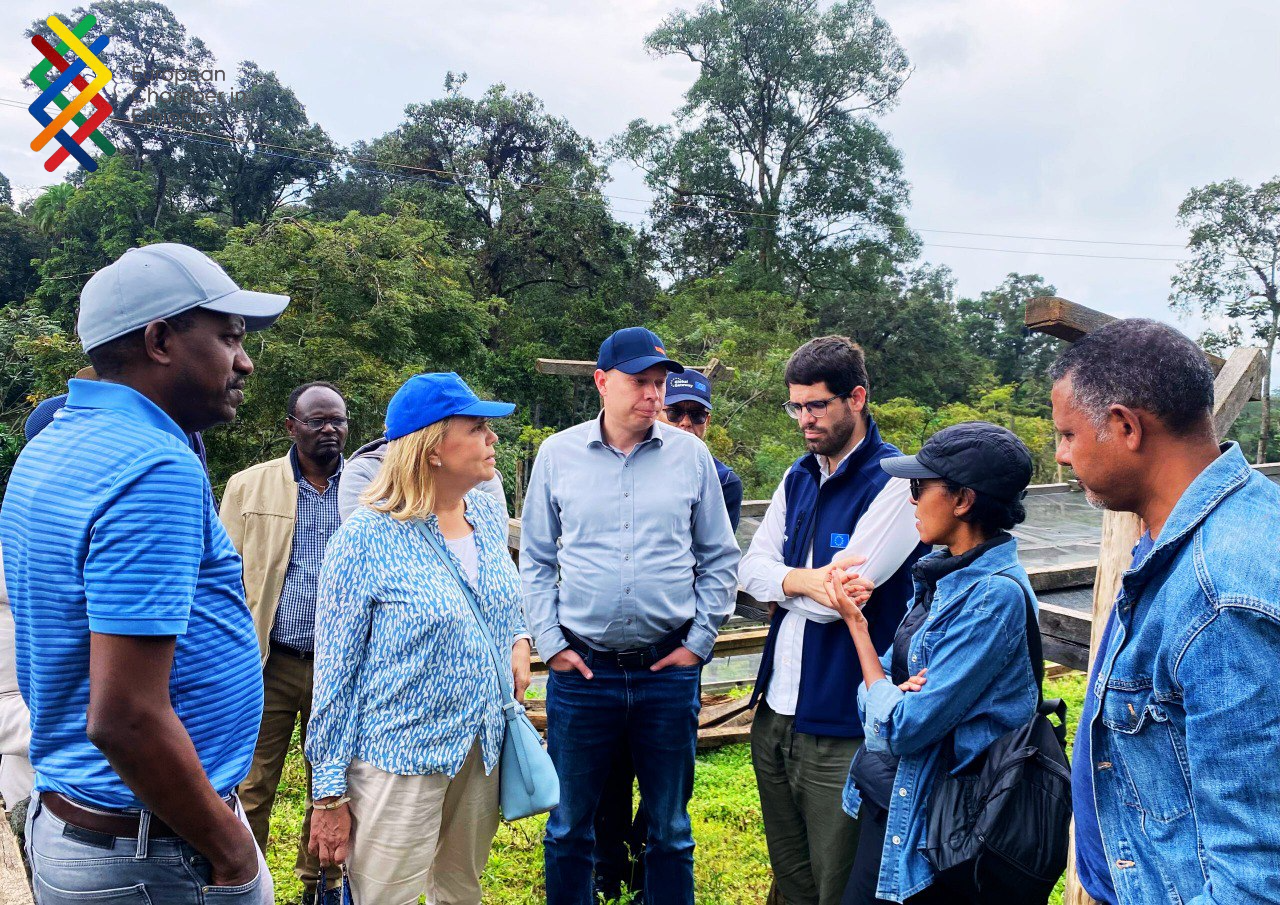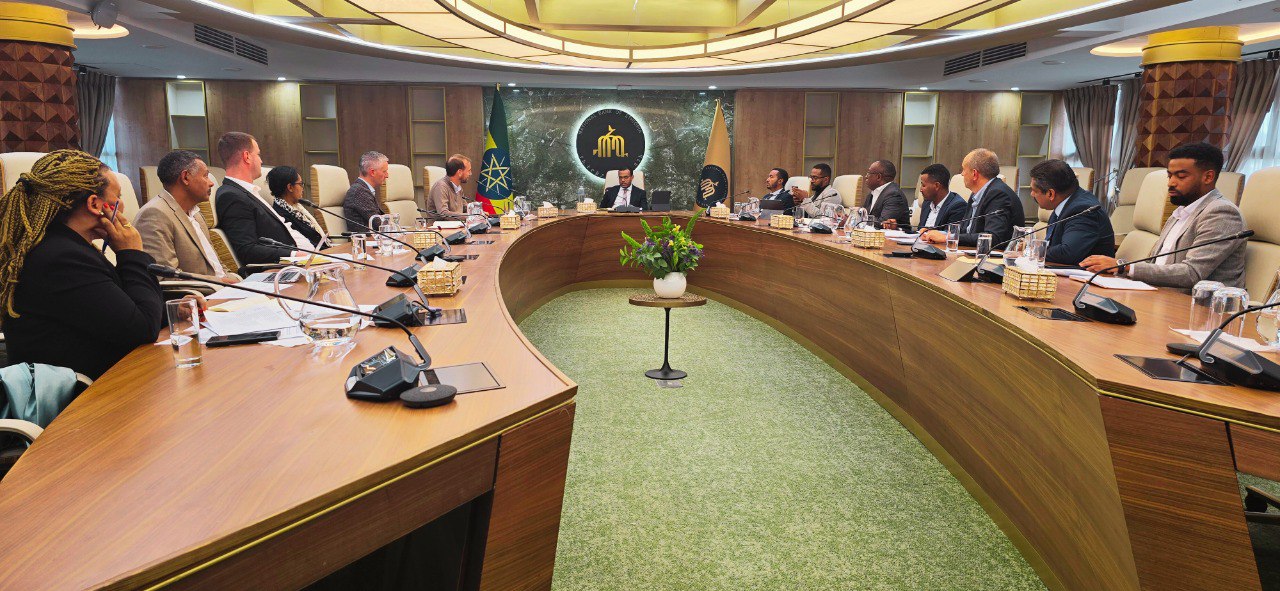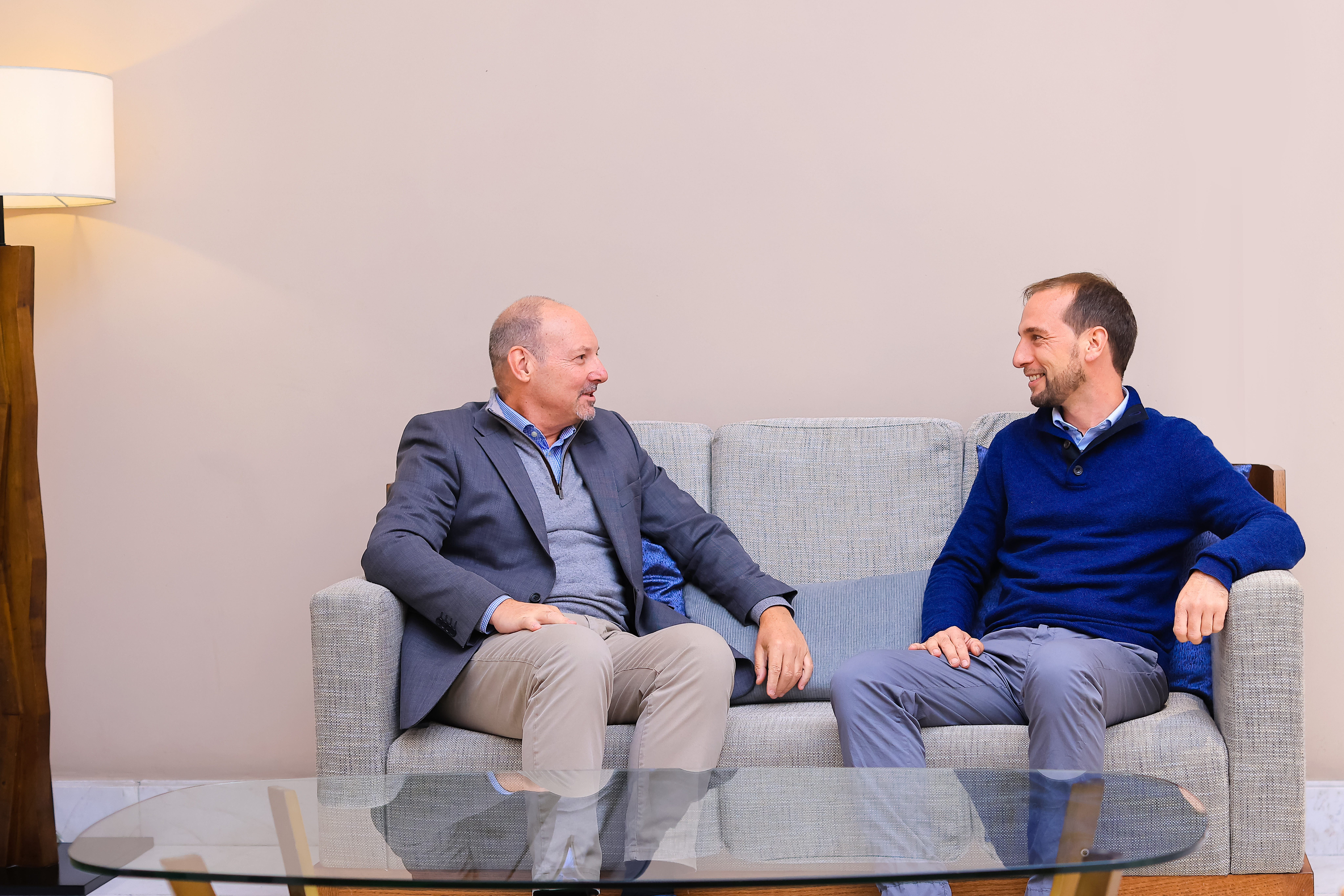
European Chamber’s Exclusive interview with H.E. Roland Kobia, Ambassador of the European Union to Ethiopia
As the outgoing Ambassador of the European Union to Ethiopia, H.E. Roland Kobia, completes his tenure in the country, he had a sit down with the European Chamber in Ethiopia’s Board Chairman Ben Depraetere, discussing a wide range of topics from EU Foreign Direct Investment (FDI) to EuroCham’s role in enhancing the relationship between the EU and Ethiopia.
As you end your mandate in Ethiopia, what are the most significant achievements and challenges you encountered in strengthening the EU-Ethiopia partnership during your tenure, and your memorable moments?
I arrived in Ethiopia – full of enthusiasm and expectations – in September 2021 at a time when the world was slowly seeing the end of the tremendously difficult period of COVID-19 as well as in the immediate aftermath of a global traumatising exit from Afghanistan I was involved in. In Ethiopia, the conflict was raging; disinformation and propaganda were at their peak; there was a lot of suffering. The Ethiopia-EU bilateral relations were also at a decades-long low because of the war and EU’s resolute position in favour of peace. In short – it was a very challenging time indeed to take over the leadership of one of our largest EU Delegations worldwide and be responsible for managing a development co-operation envelope of € 1 billion. Regrettably, in the very first weeks of my arrival, I had to organize the evacuation of all expatriate staff and families, as well as ensure the safety and wellbeing of our local staff– myself staying in Addis Ababa throughout the war, with a handful of dedicated colleagues.
In general, the legacy of the conflict, and the strain that the principled and vocal stance of the EU had on our relations, did certainly influence my time here. I can’t say it was a smooth posting. Nonetheless, with great support of the EU Member States and my team at the EU Delegation, we have worked to keep the bar high on international law principles, while maintaining dialogue. We worked on a new political roadmap for Ethiopia, culminating in the April 2023 Council Conclusions, unanimously approved by all 27 European Foreign Ministers and the EU High Representative. That sent a clear signal to Addis that the EU was open to gradually work on the normalisation of bilateral relations, within the context of progress on justice, peace and humanitarian access. Unfortunately, not everyone in Addis has understood that proposal, and the seriousness thereof, and has measured the importance of the hand we were lending. We could have done much more together if the readiness to re-engage had been reciprocated.
Particularly memorable moments, work-wise, during my time here, were visiting the Tigray Region for the first time with Humanitarian EU Commissioner Lenarcic in June 2022; creating and engaging with the EU-ETH Youth Sounding Board – an invaluable platform for us to discuss our policies and approaches with a diverse group of outstanding young Ethiopians. I was lucky enough to also be able to work as EU Ambassador to the AU for several months, with the great team we have in our EU Delegation to the AU. This was a lot of hard work overseeing two missions at the same time but thanks to the great staff in both, it gave me a unique insight to the workings of an organisation that has been modelled after the EU; also importantly, celebrating the ten-year anniversary of the European Chamber in Ethiopia – EuroCham – in 2022! Trade and people-to-people connections are the real bonds that tie societies together. EU companies do a fantastic job in Ethiopia and show great strength and incredible resilience in managing a number of concomitant challenges. I am also a Professor at the College of Europe – so engaging with energetic students to explain what the EU is all about at various Ethiopian Universities as well as at the UNECA were a great source of inspiration.
How has Ethiopia evolved during your time here? What are the most striking differences between the Ethiopia you arrived in and the Ethiopia you are leaving behind?
Most clearly, and encouragingly – thanks to the agreement – the conflict in the northern part of the country no longer devastates the lives of millions of Ethiopians. It is known that peace is not just the absence of war, it is the creation or re-establishment of a wider sense of humanity. Thus, although guns are by and large silenced in Tigray, other tragic conflicts have replaced it and continue to persist today, particularly in the Oromia and Amhara regions with instability also in peripheral regions. A swift negotiated solution will have to be found and be tailor-made; one-size-fits-all accords never work.
Corruption and the reduction of public / civil society and media space have unfortunately not seen a trend towards improvement. This will be a tricky issue to deal with if not curtailed as soon as possible. It risks undermining an otherwise great Ethiopian culture and global perception – one of the real assets of the country.
On the wider geopolitical scale, I have seen Ethiopia seek to adjust to global shifts and test alternative models. The BRICS membership is the clearest indication of this. Understandably, Ethiopia wants to nurture relations with as many partners and organisations, balancing their acts, hedging their bets and reaping the fruits of multiple partnerships. But, as we have seen with the recently launched economic reform programme, the traditional UN-based IFI system of IMF and WB – which is fully backed by the EU and EU Member States – remains the most reliable and generous partner for the country, with much needed reforms having to be frontloaded in Ethiopia. Ethiopia could not find meaningful financial assistance matching its needs outside these classic channels. I hope reforms, needed under the IMF package, will be frontloaded, showing the real commitment of Ethiopia to move towards a market-oriented economy, more protective of businesses, with major impediments being tackled (corruption, extra-budgetary spending, prioritisation of expenses to pro-poor policies, fiscal transparency…).
I have also sensed an Ethiopia seeking to be more assertive, and “taking the lead”. This is a good thing if placed within the frameworks and clear principles enshrined in the UN and AU charters, which Ethiopia has signed up to, and honour the good practice of outreach and dialogue with sisters and brothers in neighbouring countries. The region needs Ethiopia to lead by ensuring stability internally and « exporting » security in the region. To be accepted as a leader, a country needs to build good and tension-free relations with its neighbours and with the wider international community.
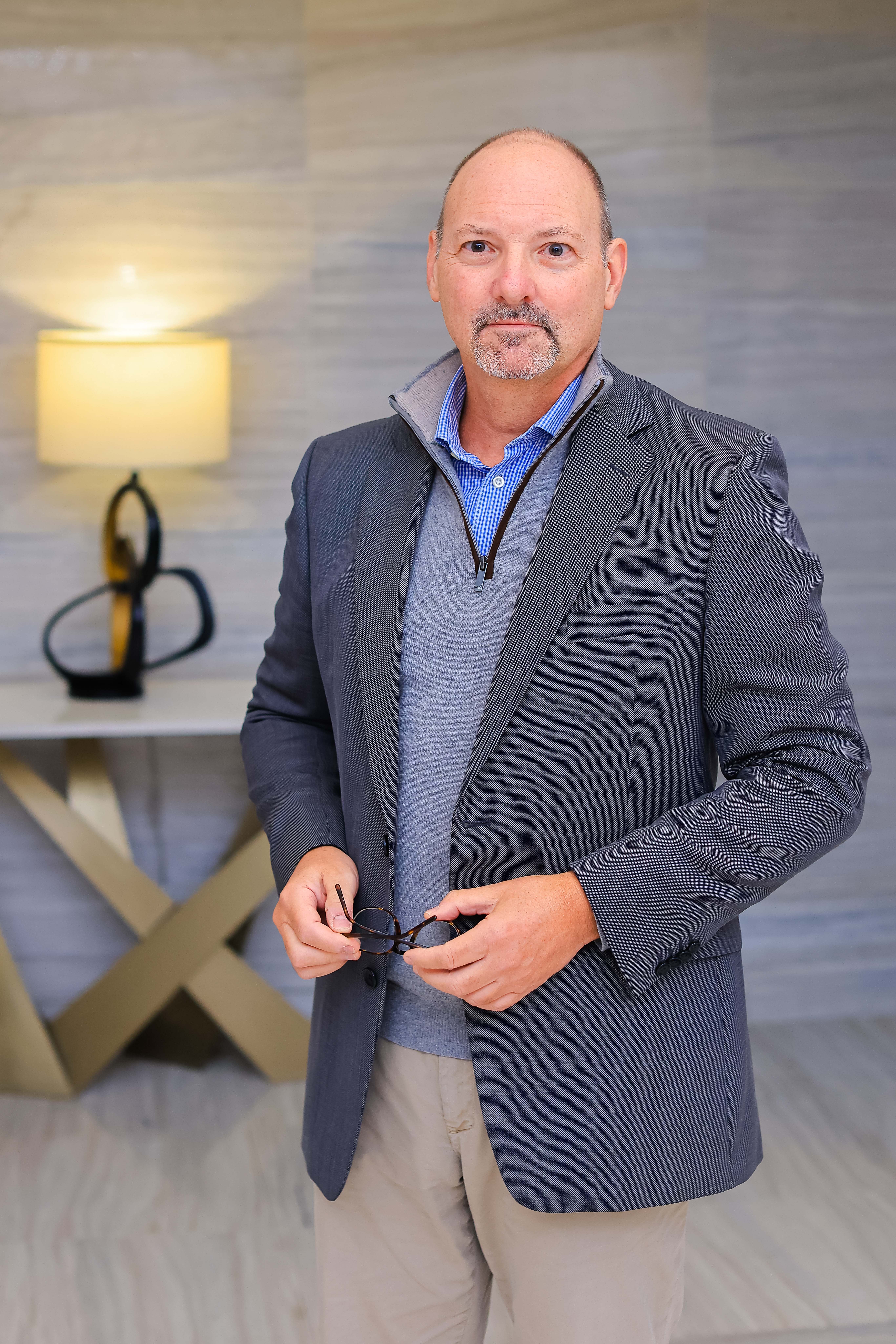
What do you see as the biggest opportunity for Ethiopia in the next decade? What are the key areas where you believe the EU can make the most significant contribution to Ethiopia’s development in the coming years?
I certainly don’t have a crystal ball. But, as briefly alluded in your question, the greatest asset of Ethiopia – on top of significant natural resources (land, water, power, mineral resources) – are its people. Everyone who visits this country notices an ability to work hard, and unparalleled resilience. Yes, Ethiopians want to do things “their own way” and this can be a bit challenging when it goes against normal practices found elsewhere, when international conventions that have been ratified are interpreted and implemented in a very flexible way. If we want to avoid chaos and wars, we humans need common rules and norms to be able to cooperate, to solve differences legally and peacefully. The rule of law and legal certainty are going through hard times, also in Ethiopia. I sincerely hope that in the face of increased opening to a global world and through economic times ahead, the situation can smoothen.
As far as opportunities go – there are many. The 21st century will be the African Century, and Ethiopia as host of the AU and as one of the big diplomatic hubs in Africa will have to be counted in. Of course, maintaining the historic Ethiopian discipline, work ethic and highly enviable “esprit de corps” in a rapidly growing transactional environment will be challenging. The Addis Abeba Corridor Project – visionary but not without short to medium-term drawbacks for finances and the people – does show that when a goal is set, it can be achieved, and hopefully this vigour will pervade other undertakings and endeavours directly favouring the people in need, also in relation to long time partners. A remarkable set of reforms is being re-kindled by the administration – this is much needed, and the administration is to be lauded for taking a new path and breaking with some of the more protectionist approaches of the past. But the fundamental key to making the most of all opportunities is peace. So, I very much hope that the ongoing conflicts will be resolved in a peaceful way – sooner rather than later, and that a truly inclusive National Dialogue process settles a number of thorny issues and sets the course for the future.
As far as an EU (which of course includes EU Member States) contribution is concerned, the Ethiopian Green Legacy is possibly where we can do most. The Green Legacy is similar to our own EU Green Deal. Both work towards a re-thinking of our economies and touch on all aspects of life in Ethiopia and the EU. We have made great strides at home and under the right Rule of law conditions, can contribute tremendously – in particular through the Global Gateway – with our experience and investments.
How would you describe Ethiopia’s progress in building a genuine democracy? What kind of support can the EU offer to Ethiopia using lessons from the EU’s own democratic journey?
The Ethiopian journey towards democracy is not that different from that of the rest of humanity. Ethiopia’s journey has started relatively late – and given that a number of key issues are still contested by some, the journey will have to have its own path, which will probably not be linear. It is not easy, but certainly worthy, as history has proven it, with strong and authoritarian regimes lasting less than democracies. Political regimes are mainly a question of political will by their leaders, so if the leadership really wants democracy in Ethiopia, the country has shown that it can do things when it believes in it.
Key for democracy are an educated / informed electorate (hence the need to focus on education), free and responsible balancing powers (media, civil society…), strong and independent institutions – and of course, most fundamentally, an agreement between the elites in a country that the democratic process is the way they will settle their differences. I see some commitment from a few in the country. The election in 2005 was perhaps a missed opportunity and the recent conflict has changed dynamics. If enough commit, it will happen – but not overnight. The EU is already supporting the Human Rights, elections, and other sectors that are vital to secure a level playing field for all. The European Parliament is looking to enhance co-operation with the House of People’s Representatives. We have had varying paths in the EU and EU MS. Many brave people have fought, and even lost their lives, in pursuit of this fragile but wonderful approach. Our experience and thus advice is to stay the course, allow for freedom of expression, free assembly etc – recognising at the same time that a great responsibility falls on all who engage with the process and that all will need to accept compromise, and take on a “negotiator takes all” instead of a “winner takes all” mentality.
What aspects of Ethiopian culture or society have you found particularly compelling in terms of their potential to contribute to global progress and understanding?
I recently visited Mercato in a detailed way. I was amazed to see the social and environmental role of this once infamous Mercato. Besides proving its bad reputation wrong (I met many nice and welcoming people), I was surprised to see the incredible contribution that Mercato provides in terms of recycling everything in every way. If Mercato did not exist, Addis Ababa would be much dirtier, as rubbish would stay in the streets instead of being collected to be reused. Without Mercato, many people would be without jobs, and this would increase insecurity and poverty. I therefore hope Mercato will survive the radical works of the Corridor, and even be protected as a heritage of the city.
One the cultural side – I have to say I have been blown away by Ethiopian music, an art very dear to me. The many varied styles of traditional music, the azmaris, the restaurants with great Ethiopian food and displays of truly original dances from the four corners of the country. And last but not least – Jazz, where freedom and creativity become music. I love Jazz as it is the music that best embodies politics: there can be many variations on a single theme, and there is a lot of improvisation. I have been blessed to meet and listen to some of the great profiles of Ethio Jazz, that truly unique sound and feel – which could only have originated on the back of the range of all the musical components of the country. I hope all Ethiopians, notably authorities, understand that artists and musicians are the best Ethiopian ambassadors abroad, and here locally. Cultural places need to be protected to make Ethiopia shine. So, long live Fendika and the EthioJazz clubs, and many others.
Other highlights for me were to host the 2024 World Jazz Day at the EU Delegation, with the participation of so many great Ethiopian stars, and the tradition of running. As many others, I have marvelled at great Ethiopian results throughout the ages and it has been a real pleasure and honour for me to continue our EU tradition of hosting annual Children’s Running races and collaborating with the sporting greats in doing so.
Given the evolving geopolitical landscape, how do you envision the future of EU-Africa relations?
Today, there is an overwhelming confluence and flux of values and hopes, both in Africa and Europe. The partnerships between our two continents are however, in fact and looking beyond propagandist attempts by some, as strong as ever because our relations are ancient, deep, encompassing, and geographically close. Our societies are integrated to a large degree. The AU is modelled institutionally on the EU but will continue to develop its own purpose and its specific way of doing things. But we share ambitions on joint values in our respective AU and EU Charters – democracy, human rights and the rule of law. Now, we need to walk the talk, and ensure implementation of what was signed, helping each other.
The EU continues its offers on trade as the largest trading bloc in the world, based on transparent and comprehensive agreements, often non-reciprocal and favouring recipient countries. The EU’s highly preferential trade system called “Everything But Arms” (EBA) allows basically all (7200) commodities to be imported into the EU market duty-free and without any quantitative restrictions. That system helps to generate growth and create jobs in Africa. We unfortunately witness a “geo-politicisation of trade”. Figures show that some countries trade less with those that are more geopolitically distant, even if it is not in their long-term interest. We need political maturity to differentiate trade and politics, and to continue partnering on A even if we have a disagreement on B.
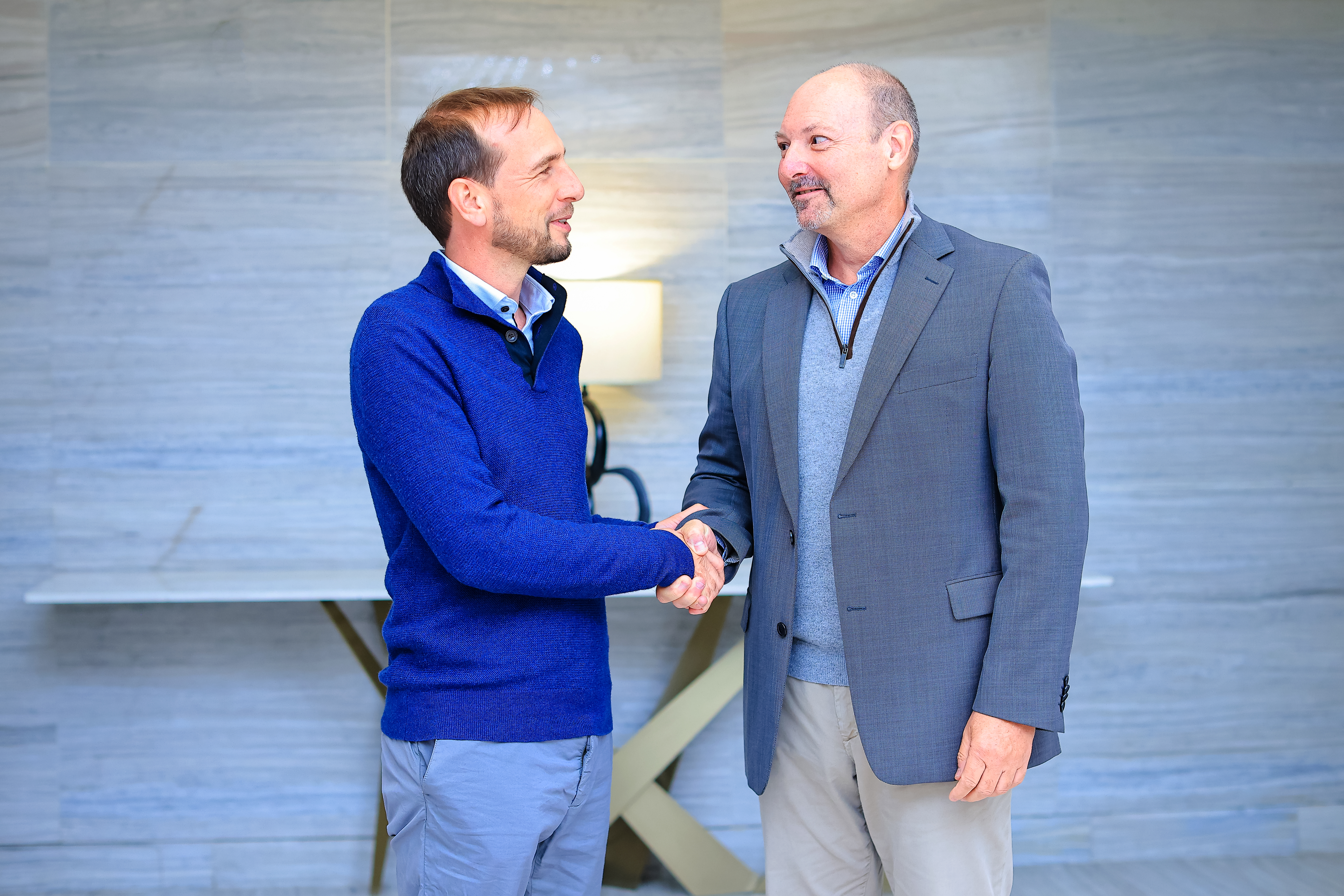
During your tenure, how receptive have Ethiopian authorities been to European Union Foreign Direct Investment (FDI)?
Let’s not forget that for any country, trading with the EU is trading with the largest and richest integrated bloc in the world. Few governments come to mind that would not extend a red carpet to European FDIs in their territories, given that they not only symbolize a full-pledge pecuniary commitment that is a direct result of the attractiveness of the local economy, but also supports key areas like employment and economic diversification. Most economies that are currently regarded as emerging or developed owe this, to some extent, to a high degree of FDI at some point in their history. The EU MS, after recovering from World War II, became a leading source of FDI for the world, cementing its strong ties with a large list of countries and regions. In this sense, the outward FDI from the EU to Ethiopia from 2020 to 2022 has remained steady at €1 billion yearly, representing a third of the total FDI this country has obtained in this period.
These figures are a testament of the EU’s private sector commitment with Ethiopia and acknowledgement of the opportunities it presents, because maintaining equal levels of EU FDI, despite the hindrances that many sectors and operators have to go through to conduct their business, is praiseworthy. The new governmental reforms aimed at attracting further FDI by, for instance, lifting restrictions in terms of FX retentions and profit repatriation, represent some of the necessary steps demanded by the investment community to overhaul its involvement in Ethiopia. I sincerely hope that these measures will be accompanied by others in economic and peace resolution terms to enable an FDI boom in the country.
Have you had the opportunity to visit rural areas of Ethiopia? If so, what insights did you gain into the lives of ordinary citizens beyond the statistics, and what do you envision for Ethiopia’s development moving forward?
I have visited all regions of Ethiopia, some on several occasions. I have always been very well received, at the highest level, in all regions. It is easier there to have a real political dialogue. I encourage all diplomats to work more with the regions, Ethiopia is not Addis only.
I have been truly impressed by all Ethiopian women – rural and urban – they are the backbone of the country! In what some might refer to as a society dominated by men, women nonetheless undertake remarkable economic and social roles. It is heart-breaking to see the heavy loads that many women carry on their backs on the roadside. Hopefully, they will soon – one way or the other – get affordable contraptions with wheels so they can either push or pull these loads. Many have commented that it was the Ethiopian women from all corners of the country – and in particular Empress Taitu – who played the really decisive role at the iconic battle of Adwa.
How do you assess the potential of EuroCham in enhancing the relationship between the EU and Ethiopia, and what role do you see it playing in this dynamic?
First, I want to pay a sincere tribute to EuroCham for the extraordinary work they do. I also want to express my admiration for the resilience and courage of European entrepreneurs, working under a climate of unpredictability, legal uncertainty and insecurity, just to mention a few of the problems of an overall unfriendly investment climate they face. I would not be personally able to do what they do.
I perceive EuroCham, which represents more than 180 European companies, as a vital catalyst in strengthening the relationship between the European Union and Ethiopia. Companies do business of course, but they create jobs for Ethiopians, lots of jobs; they bring high standards of Corporate Social Responsibility; they provide good working conditions to workers, which I hope can inspire some non-EU companies to do the same; they contribute to overall growth and prosperity. The role of the EuroCham in promoting trade, investment, and mutual understanding is an essential component of the EU’s action and engagement with Ethiopia, all the more important if we take into consideration the real needs of this country and the importance of the EU for its exporting businesses. EuroCham also produces excellent and regular “policy briefings”, which both identifies challenges and also constructively propose solutions. But for that to materialise, a real and regular dialogue with all authorities is necessary. I hope the new IMF agreement will turn dialogue into a more natural thing in Ethiopia, and that the business environment will also be a focus of the reforms.
For Ethiopia to be more attractive to investments, a lot remains to be done. Frankly, the context for investors is not ideal. Many companies –not only European but also Asian, Middle East etc- have left Ethiopia, and not many get the necessary reassurances to invest.
Nevertheless, with our existing presence in the country, in 2023, Ethiopian exports to the EU amounted to €688 million, in line with the recorded exports in the previous three years, and this country strongly requires functional and independent business associations, like EuroCham, to strengthen its trade-oriented sectors and the economy as a whole.
By facilitating dialogue between European companies and Ethiopian authorities, EuroCham helps to identify and address challenges, streamline business operations, and ensure that the benefits of our economic partnerships are maximized for both sides. Its work is also instrumental in ensuring that European businesses operating in Ethiopia are well-informed about the local market conditions, regulations, and opportunities. This not only enhances their ability to succeed but also strengthens the confidence of new investors considering Ethiopia. The EU Delegation has gone hand in hand with EuroCham in our active engagement with the national and local authorities in numerous areas, from private sector development, to access to finance.
Hence, looking ahead, I see EuroCham playing an even more dynamic role in the evolving EU-Ethiopia relationship. As Ethiopia continues to implement its ambitious economic reforms, EuroCham will be key in supporting these efforts by fostering partnerships, encouraging responsible business practices, and ensuring that European investments align with Ethiopia’s development goals. In this way, EuroCham will not only contribute to the economic growth of Ethiopia but also solidify the ties between our regions, making the EU-Ethiopia relationship more robust and future-proof.
latest News
EuroCham Launches a New Office and FDI Incubation Center
February 1, 2026
EU and EuroCham Sign Grant to Boost Ethiopia’s FDI competitiveness
November 22, 2025
EuroCham Networking Event Discusses New Income Tax Law
October 22, 2025
EuroCham Urges Reconsideration of EUDR Timeline
September 29, 2025
EuroCham Conducted Technical Discussions with Outgoing NBE Governor
September 17, 2025
